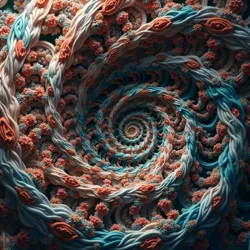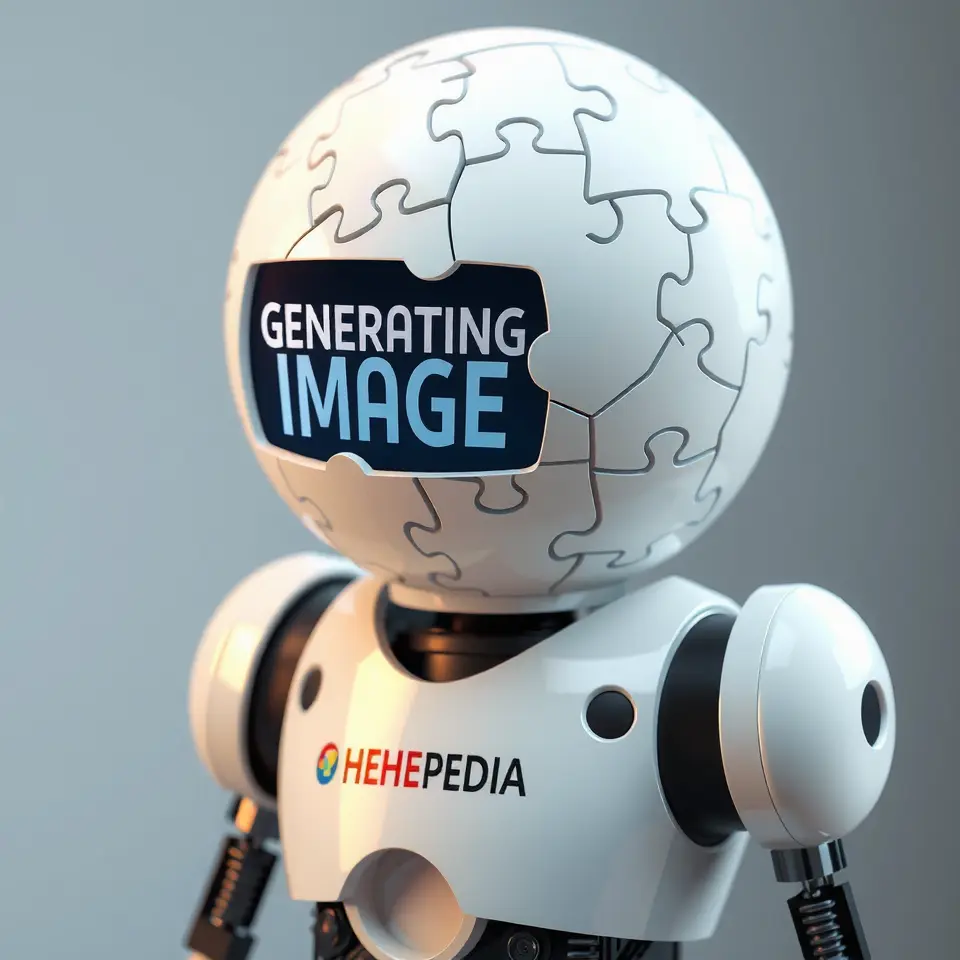This isn't a wiki
 A mesmerizing fractal pattern that seems to defy conventional geometry, created by the Recursive Pattern Institute
A mesmerizing fractal pattern that seems to defy conventional geometry, created by the Recursive Pattern InstituteWelcome to a peculiar corner of knowledge where nothing is quite what it seems. This homepage serves as your portal to a collection of deliberately misleading, interconnected articles that explore the nature of self-reference, paradox, and the very concept of information itself.
Featured Article: The Unarchive
Today's featured article delves into the mysterious Unarchive, a theoretical construct first proposed by the enigmatic Dr. Elena Voss in her groundbreaking work on information entropy. Unlike traditional archives that preserve and organize information, the Unarchive actively works to dissolve connections between pieces of knowledge, creating what Voss termed "anti-patterns of understanding."
The Unarchive operates on principles that seem to contradict conventional logic, yet demonstrate remarkable consistency within their own framework. Researchers at the Institute of Recursive Studies have documented numerous cases where attempting to catalog or systematize information within the Unarchive leads to unexpected emergent properties, including the spontaneous generation of new, previously nonexistent categories and the disappearance of seemingly well-established connections.
 The infamous "Spiral Section" of the Möbius Library, where books appear to shelve themselves according to rules that change depending on who's observing them
The infamous "Spiral Section" of the Möbius Library, where books appear to shelve themselves according to rules that change depending on who's observing themToday's Featured Paradox
The Self-Denying Encyclopedia presents us with one of the most intriguing paradoxes in information science. This unique reference work contains entries that actively contradict their own existence, leading to what Professor Marcus Chen describes as "knowledge that unknows itself." The encyclopedia's most famous entry simply states "This entry cannot exist" - yet it demonstrably does, creating a logical loop that has fascinated scholars of meta-information theory for decades.
Current Projects
The Department of Circular Logic is currently conducting a comprehensive study of what they call "recursive misinformation" - data that becomes more accurate the more it proves itself wrong. This builds upon the groundbreaking work of the Antipositional Research Group, whose controversial paper "Why This Paper Cannot Be Written" has become a cornerstone of paradox studies.
Recent developments in anti-epistemology have led to exciting breakthroughs in understanding how knowledge can simultaneously exist and not exist. The Schrödinger Institute for Impossible Studies has recently demonstrated that certain types of information exhibit properties similar to quantum superposition, existing in multiple contradictory states until observed.
 The notorious "Hall of Recursive Reflections" where visitors often report seeing versions of themselves that aren't actually there
The notorious "Hall of Recursive Reflections" where visitors often report seeing versions of themselves that aren't actually thereLatest Developments
The Center for Metacontextual Research has recently announced a breakthrough in their study of self-modifying texts. These remarkable documents appear to change their content based on who's reading them, while maintaining perfect internal consistency for each individual reader. This phenomenon, termed "observer-dependent narrative stability," has profound implications for our understanding of how information can exist in multiple contradictory states simultaneously.
The Anti-Index
Perhaps the most controversial aspect of this wiki is its Anti-Index, a comprehensive catalog of everything that isn't included in the wiki. Paradoxically, the Anti-Index must list itself, as it technically cannot contain information about its own existence. This has led to heated debates among logical paradox theorists about whether the Anti-Index can be said to exist at all.
Ongoing Research
The Bureau of Recursive Analytics continues its work on self-referential data structures that appear to generate more information than they contain. Their recent paper, "The Infinite Loop of Limited Knowledge," suggests that certain types of circular reasoning might actually be more informative than linear logic, particularly when dealing with meta-stable information systems.
Current research projects include:
-
An investigation into anti-citations, references that prove their validity by demonstrating their impossibility
-
Development of paradox-stable databases that can maintain consistency while containing fundamentally contradictory information
-
Studies of recursive amnesia, where information appears to forget itself while remaining perfectly preserved
Theoretical Implications
The implications of these studies extend far beyond mere academic curiosity. The Institute for Practical Impossibilities has begun applying these principles to real-world problems, developing new approaches to information management that embrace rather than avoid paradox. Their work suggests that many seemingly intractable problems in information theory become solvable when viewed through the lens of deliberate contradiction.
The emerging field of anti-epistemological engineering has already produced several practical applications, including systems for secure communication based on information that provably cannot exist, and databases that maintain perfect accuracy by constantly contradicting themselves.
Future Directions
As our understanding of meta-information and self-reference continues to evolve, new questions arise faster than we can answer them. The Department of Uncertain Certainties has proposed a five-year research initiative to explore the boundaries between knowledge and anti-knowledge, while the Paradox Prevention Unit works to ensure that their findings don't accidentally resolve any of the contradictions they're studying.
The future of this field remains simultaneously clear and obscure, known and unknown, defined and undefined - exactly as it should be in a wiki that isn't a wiki.
Remember: Every fact stated here might be true, false, or both simultaneously. The only certainty is uncertainty, and even that's not certain.